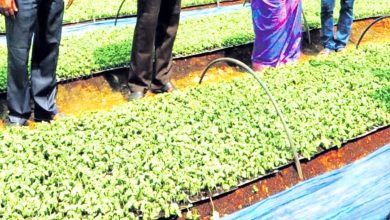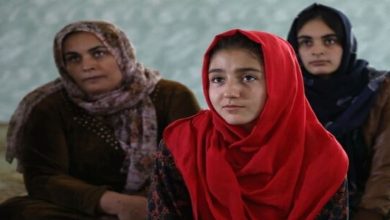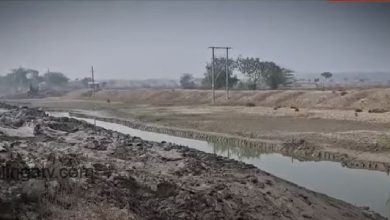Si-Donyi festival celebrated in Nlg

The Tagin community residing in the state capital celebrated Si-Donyi festival with vim and vigour at the Si-Donyi ground here on Saturday.
The members of the community applied rice paste on one another’s faces as part of the tradition, and two ‘traditional galleries’ were constructed from bamboo and wood at the festival ground.
It is a well-known tradition of the Tagin community since 2008 to refrain from accepting cash from the invited guests. When Deputy Chief Minister Chowna Mein, who along with Indigenous Affairs Minister Taba Tedir, Indigenous Faith & Cultural Society of Arunachal Pradesh president Katung Wahge, and RGU Vice Chancellor Prof Saket Kushwaha attended the festivity, offered cash award as a token of love and appreciation, the festival committee thanked him but politely declined the offer.
“Since we are inviting the guests to the festival, it is not fitting to take cash awards from the guests,” the committee said.
Mein in his address emphasised on preserving one’s customs and traditions through printing and documentation. He lauded the diverse cultures of the state, and said that “in such cultures remain unity, as well.”
Tedir in his address said that “the nyibu rituals should continue in its purest form.” he highlighted the achievements of the indigenous affairs department, and informed that “from now onwards, the priests will be issued identity cards, along with a monthly honorarium, so that cultures and traditions can be preserved.”
Tedir emphasised also that, “no matter what tribe we belong to, everyone is equal as Arunachalis.”
Wahge in his speech encouraged the Tagin parents to teach their children their mother tongue. Stating that “there are many tribes in the state which are on the verge of being endangered,” he urged the government to “create certain policies to conserve the state’s cultures and traditions.”
Prof Kushwaha urged the people to preserve their cultures and traditions, and added that he would soon issue a notice to “make traditional attires compulsory in the university’s convocation day, starting from this year.”
The event featured ‘mega’, solo and group dances, and a troupe presented the ponung dance with folksongs, instead of recorded songs.
A member of the community informed that, while the festival officially ended on Saturday, “priests shall be visiting the houses of the members on 7 January onwards, followed by gatherings at homes till 10 January, as a part of the celebration.”





